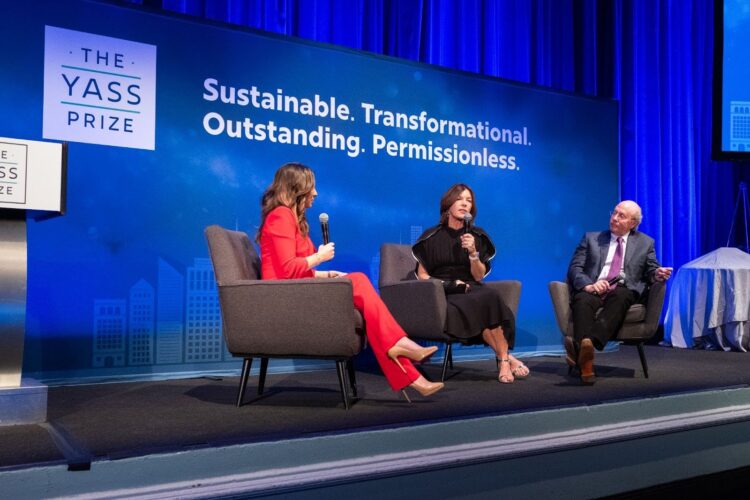The Eagles embarrassing loss to the Cardinals on New Year’s Eve day, resulting in their ceding the NFC’s top seed to Dallas have fans beside themselves. The media is all over the “why,” including retrospectives on whether the season is all over before the playoffs even start.
What happened, what went wrong, how do we fix it, who’s to blame? Fire the coach! Change the plays!! Local radio, newspapers and TV are consumed by it all. The attention, concern and outrage is unrelenting and expectations shattered.
Sports are front page news – win, lose or draw, but especially when they disappoint. How I wish there was as much attention to the challenges students face daily throughout U.S. public school systems that haven’t won a single game for the home team for almost 40 years. Don’t get me wrong. I love football. It’s great sport and hobby to millions, but it’s hardly as consequential as education.
When your favorite team begins to fail, they change the plays, or the people. Not in traditional education. When public school actions or inaction result in failure for a majority of students, there’s little done. Those who are the first to publicize a team’s shortcomings barely take notice when students fail. There’s no demand for changing the plays, or the managers, school leaders, policymakers and those delivering the actual education.
Nationally, inflation-adjusted spending in K-12 education has tripled since 1970 to a record $751.7 billion. Yet, math and reading scores for 13-year olds are largely unchanged since 1980, and most student groups declined in recent years with gaps widening further between high and low scoring students and between white and Black students, according to Education Week.
In my hometown of Philadelphia, since 2016, education spending has increased by $800 million to approximately $3 billion, despite 12 percent fewer students, while student achievement hovers between just 15-20% on math and reading respectively across a student’s educational career. That’s like making a first and ten only a couple of times a year – for 12 years!
Imagine if the news editors greenlighting the news and opinion stories covered the real story in education every day, in every town and city, writing not just about the failures but about the solutions that are transforming students’ lives for good and consequently the communities around them.
Thousands of other education options exist and offer students a ticket to what they need. They represent a microcosm of 21st century, personalized approaches to learning that ensure success. They include some innovative public schools, private schools and charter schools, and sometimes collaborations of all three that offer various in-person, hybrid and online approaches to address individualized student needs. There are literally hundreds of technology-driven solutions to declining student achievement, too.
In 2023, almost 3,000 education providers serving more than 10 million students combined from all but 5 U.S. states applied for an effort we founded to find, reward and expand great education for kids and who provide education that is personalized and responsive to emerging innovations and the urgency of a student’s situation.
But there’s a problem – the tickets are as hard to get as they are for the playoffs or the Super Bowl! Despite being the most important asset a student can gain in life, we treat great education like it’s reserved only for paying customers and limit the tickets for schools only where you live, by zip code, unless you happen to live in a state that allows you to take the money allocated for your education to score a winning game for your student.
Most parents actually need and want tickets out of schools that do not work for their kids, out of systems that confine them to areas based on their zip code. That’s why proposals like Pennsylvania’s Lifeline Scholarships hold so much promise. If enacted by the state legislature and signed into law by the governor, Education Opportunity Accounts (EOAs) would be made available to students attending a school ranked in the bottom 15% of performance so that most parents of students in failing schools will, for the first time, have the means to see that they are well-educated.
This would be a win for Pennsylvania and a life-changing event for the approximately 250,000 students who would be eligible to start. It’s hardly a novel idea, by the way; such programs are available, in one form or another, in 14 states. In 2023 alone, eight states either expanded existing scholarship programs or established new ones. Students in these states are winning big, having education tailored to how they best move and function in the game. And those who’ve been with losing teams start seeing major changes as they start refocusing their own plays in response to the competition.
Like the Eagles’ fate this year, education is by no means hopeless. Great teams can rally despite setbacks. Their fans will stick with them, but only if changes are made.
It’s difficult to be that optimistic about the fate of most US students, who are stuck without a path to their education Super Bowl. We need to use the same outrage and urgency we have about football to power the passage of Lifeline Scholarships here, and education freedom for kids everywhere.
It’s not a game. There are effective and engaged managers in learning communities all over our state and country that will gladly help coach kids to success, no matter how poorly they’ve played – or been coached – before.
Parents are their students’ biggest fans. If they don’t rise up to advocate to open the gates of opportunity, Americans will continue to suffer losses that are far greater than those experienced on a football field. They need Lifeline Scholarships and they need them now.
Go Eagles? How about, go parents!

